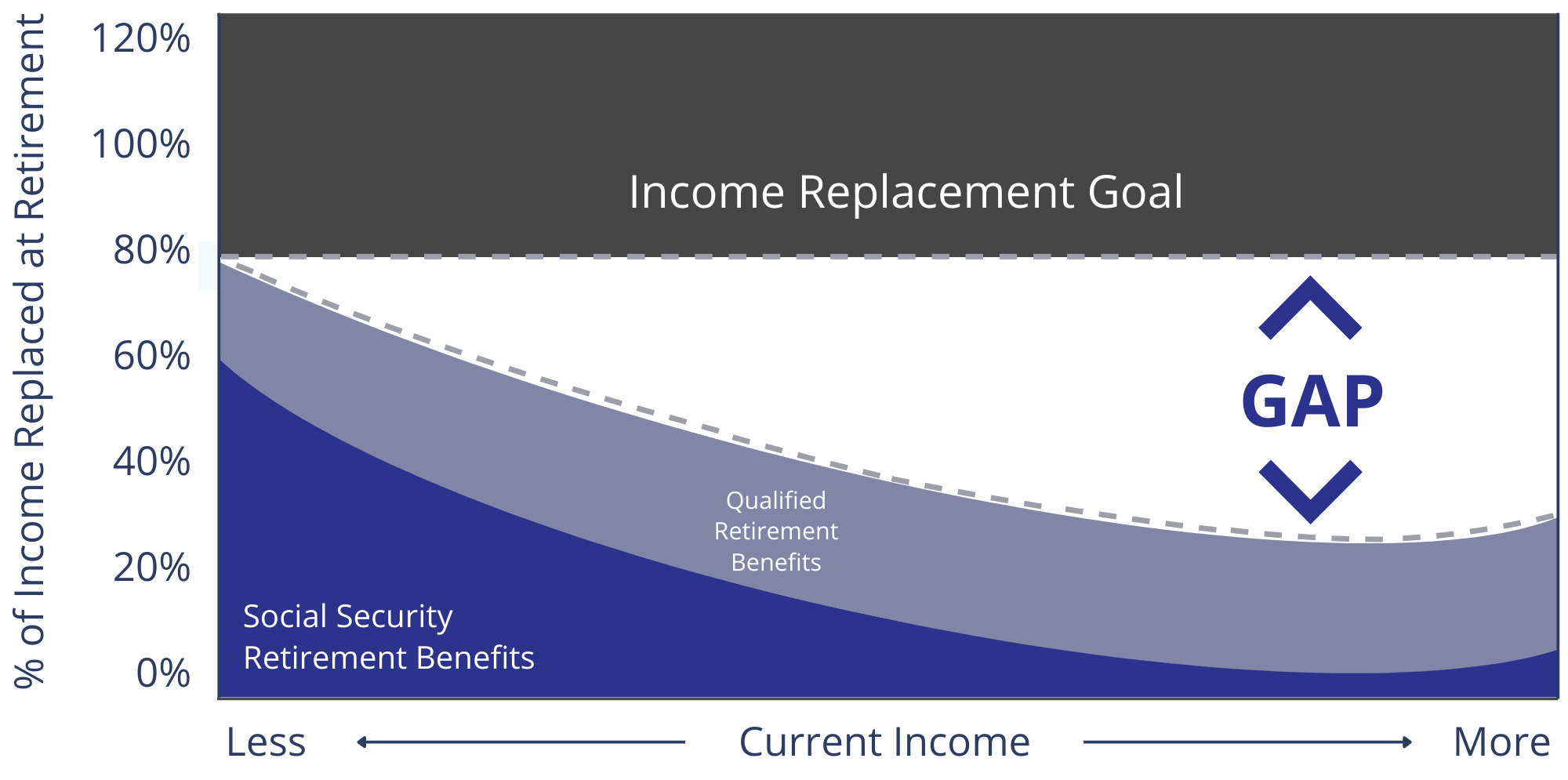Key Employee Retention & Retirement – The Retirement Gap
In the business market, top performers often command a more robust suite of benefits than the rest of the company. Unfortunately for some, that is not always the case. In fact, on a percentage basis, the top performers often lag the rest of the company in three fundamental areas. Fortunately, this “Benefits Gap” can be solved, either within the benefits plan itself or with individual solutions.
Where’s the Gap?
The Benefits Gap shows up in three areas most frequently:
- Retirement Planning
- Life Insurance Protection
- Disability Income Protection
Even if the client “already has” these benefits in place at their employer, a quick look at the benefits relative to the client’s income surfaces a significant shortfall.
- The more you make, the larger the gap
- There are limitations on qualified plan contributions
- Benefits from qualified plans and Social Security alone can leave a sizeable gap
The figure below shows how the Retirement Gap increases as compensation increases:

How to Close the Gap?
Ultimately, it comes down to having a supplemental retirement plan. In the employee benefits setting, that can be accomplished via a deferred compensation plan or other bonus plan. Absent an employer that is willing to contribute additional funding, it’s up to the individual to make up the difference. In that case, evaluating the client’s “asset location” or the tax efficiency of their overall retirement plan, often points to the need for a larger allocation to assets that, when properly structured, are not subject to ordinary income or capital gains tax. An increase in that allocation can not only close the retirement gap, but also provide the critical tax diversification that allows clients to respond appropriately to future changes in tax rates in retirement.
Complete the form below to learn more.
The contents of this document should not be considered as tax or legal advice. Any information or guidance provided is solely for educational or informational purposes and should not be relied upon as a substitute for professional advice. It is always recommended to consult with a licensed financial or legal advisor for specific guidance related to your individual situation.

